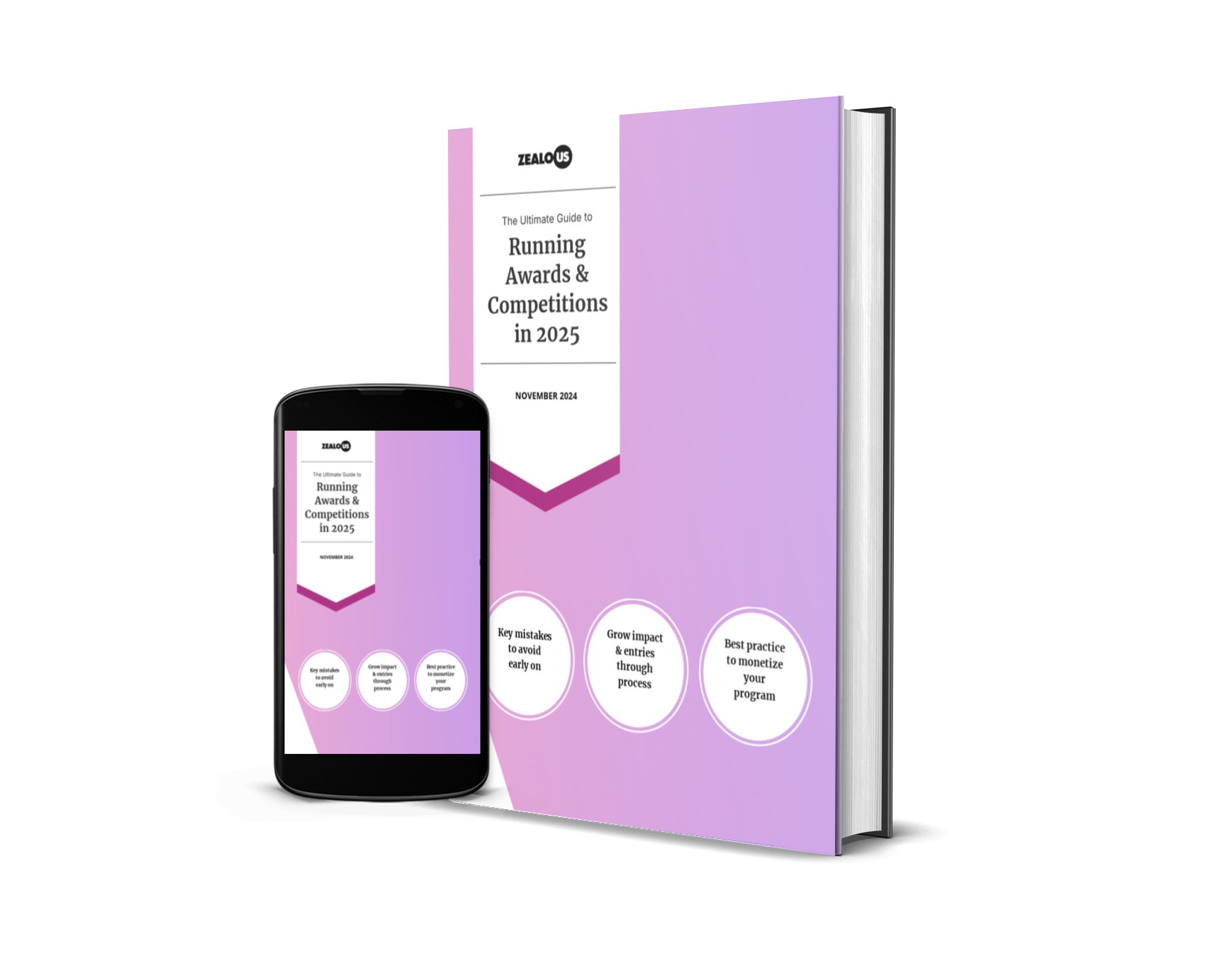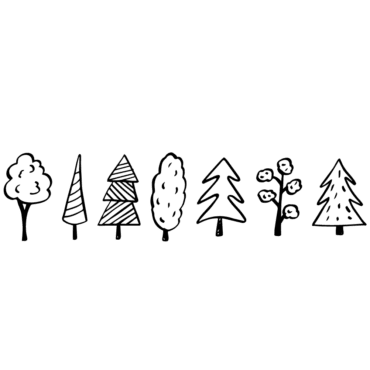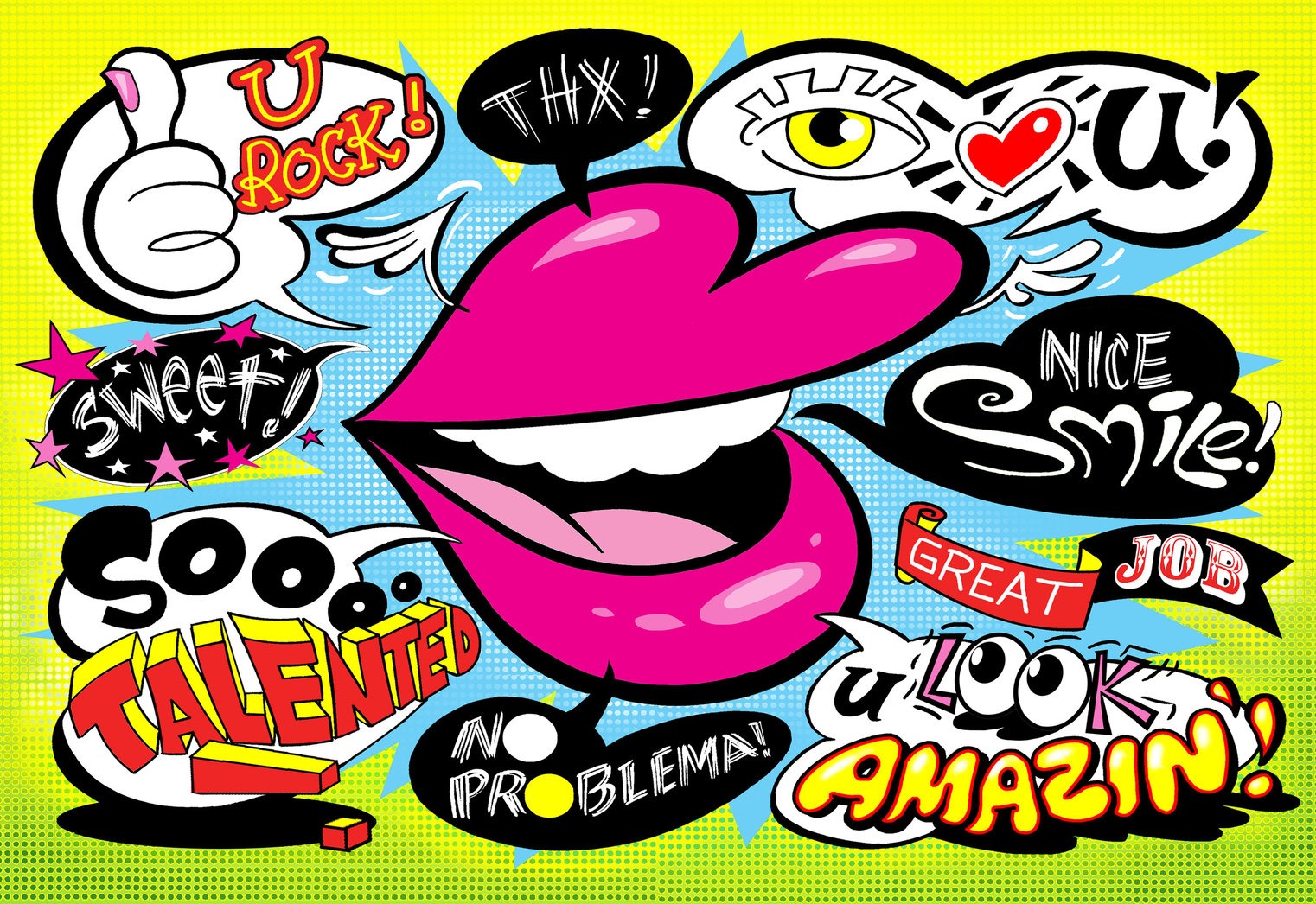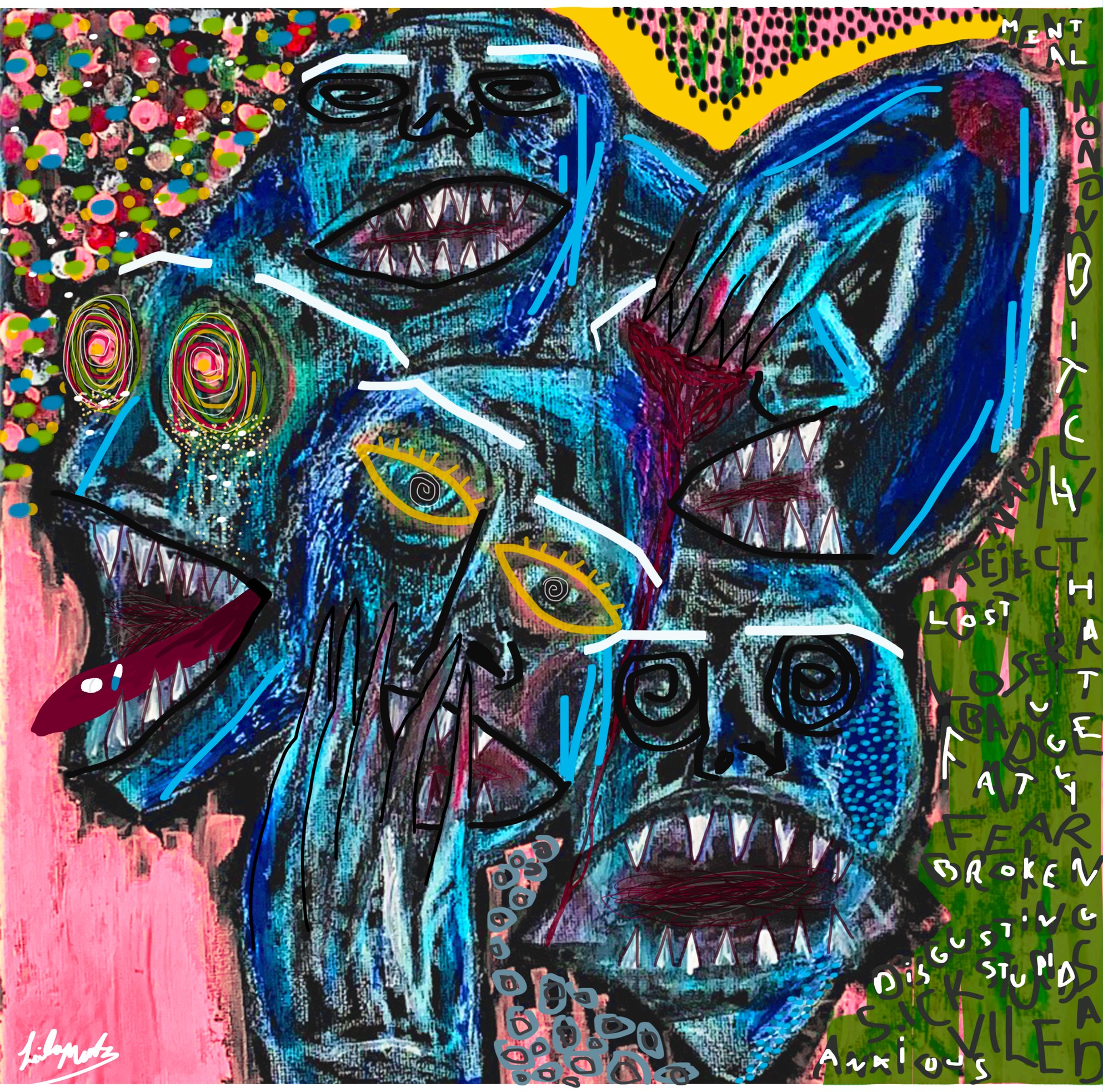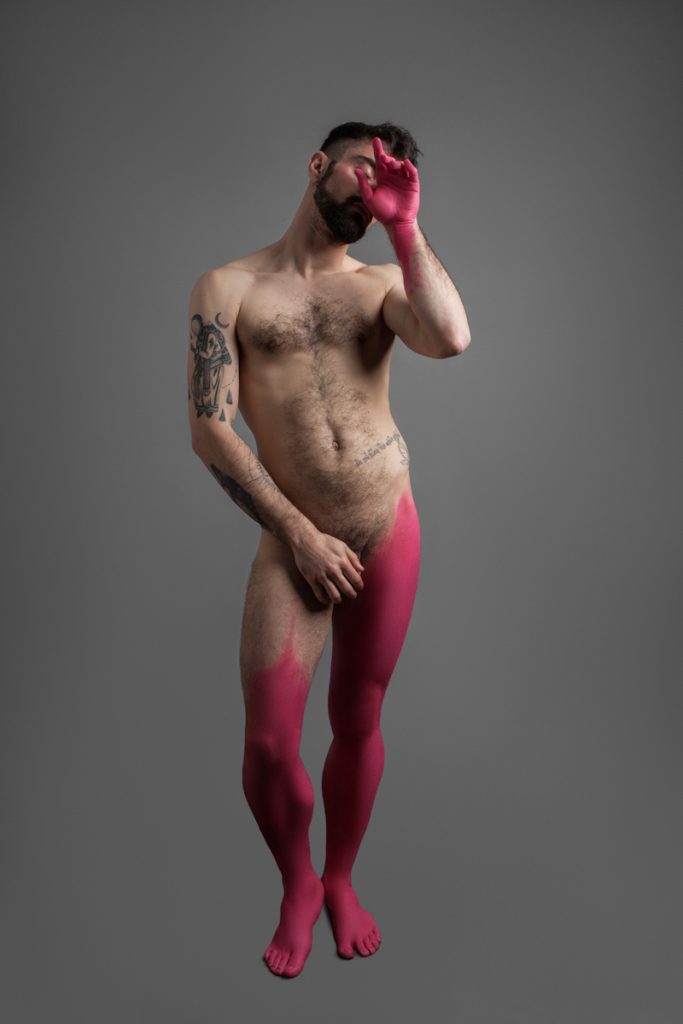
Hi Diogo! You define yourself as an “Image Maker”. How does this differ from a traditional photographer or fine artist?
In a way, I think that by defining myself as a photographer I’d imply that I create images only using a camera, which is only partly true. I use other tools to create images so the word ‘photographer’ falls short of it, also because a lot of the time (particularly when I’m creating self-portraits) I’m not even the person pressing the shutter so by definition I’m not the photographer.
Image Maker felt like a good choice of words as it defines better what I do: orchestrating images and imagining scenes; the process of obtaining those images is not so relevant to me. As to the fine artist bit, well, I think it’s a bit broad so when I use ‘Image Maker’ at least people know I make images, as opposed to sculpture or other mediums.
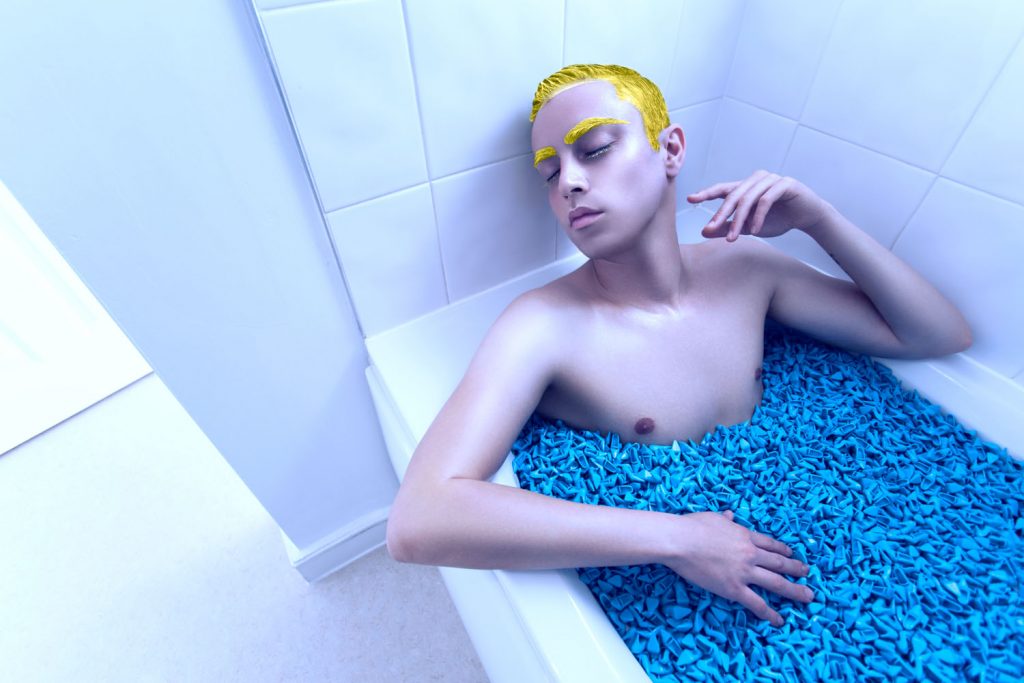
Your background is in mental health and bereavement. How does this influence your creativity?
In every way you can imagine to be honest. My professional background is in mental health but my entire outlook on life has been affected by first-hand experience of anxiety from a very early age which has stayed with me to this day. It doesn’t define me but it’s part of who I am so it’s only natural that a lot of the themes I explore in my art revolve around this, or aspects of it.
Of course, working in the field is also incredibly inspiring, even if emotionally demanding, as I am constantly in touch with other people’s inner worlds; listening to someone’s story and being a witness of their honest feelings is very powerful and stimulating of my imagination. I really don’t think I could work in the field, or be sane for that matter, if I didn’t have my camera to use as a vehicle to escape or process what I deal with on a daily basis.
Your PhotoBard series captures the most incredible, intimate aspects of a person’s personality. When capturing portraiture, how involved are you with directing your subjects?
Thank you! I don’t direct them very much in the traditional sense of the word. On set, I can give them some direction but that direction is mostly an attempt at getting the subject to ‘connect’ with whatever experience, feelings, emotions or thoughts their portrait is portraying. For me, psychological portraiture is about the subject’s personality and identity being captured on camera so I really need to be guided by them on set, not the other way around.
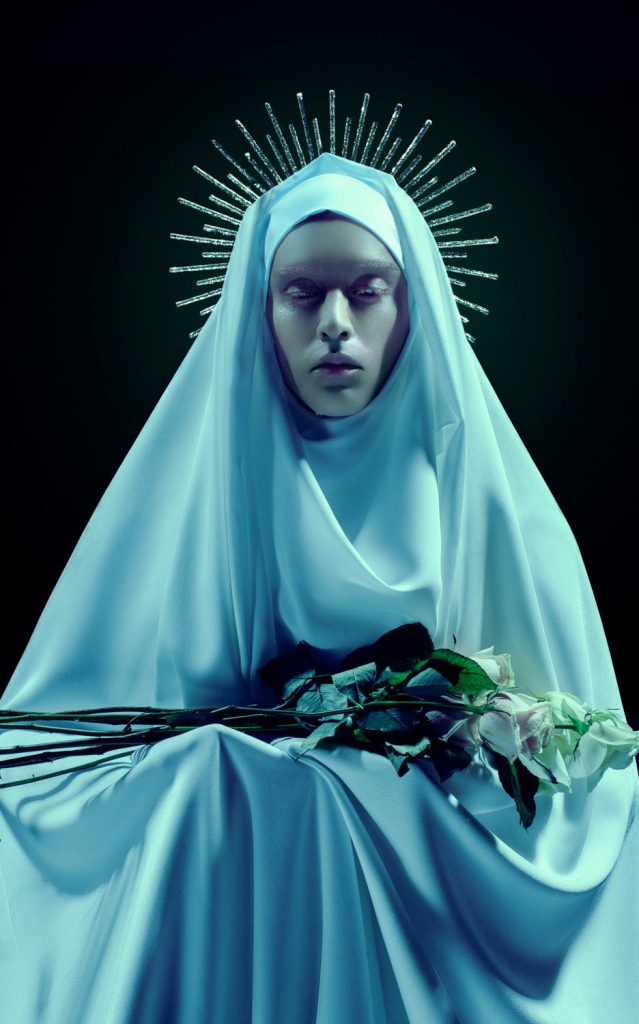
Have you always been drawn to photography? How did your creative journey start?
I always remember being involved in something or other that was creative. I was really interested in slap-stick comedy when I was a child so my earliest memory of something like this is of creating characters and acting them out. I then dabbled with writing, dance and who knows what else.
Photography didn’t come about for me until my teens when I started using it to escape the world when I was having a hard time. I gave it up when I got a ‘real’ job and then picked it up some years ago again when the need to escape arose again. Photography for me is about bending reality and a chance to look at things in a different way so it makes for a perfect escape route, even though in the process of escaping you end up facing things anyway! Now it seems to just have stuck around…let’s see!
Is there anything you’re afraid of as an artist? How do you overcome that fear?
Of course; probably too many things to write them all down. If I had to choose the top two I’d probably say I’m afraid of losing perspective and repeating myself in non-original ways. And then, of course, there’s the fear of failing to connect with others. I always hope that people will look at my work and connect at some level and take something from it, even if it’s not something pleasant. Art for me is about dialogue, either with myself or with the world. Failing to do either isn’t something I’d be proud of!
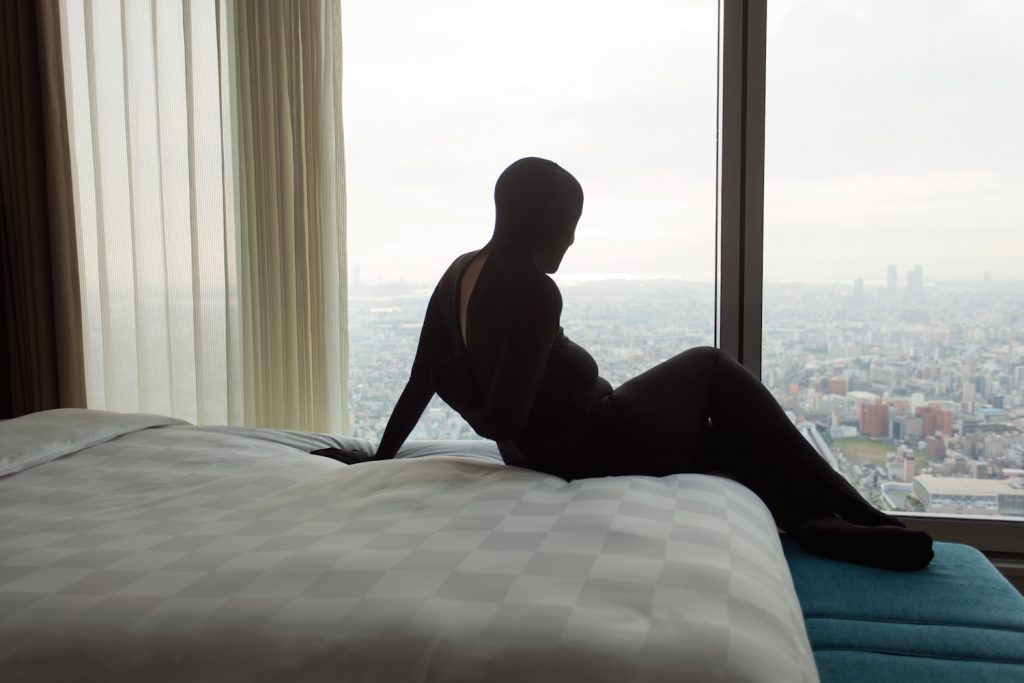
You moved to London in 2007. How important has the city’s art community been in your development?
It’s been really quite important. I didn’t grow up in a community that particularly appreciated art and it definitely wasn’t part of every day conversations. So when I came to London it felt like a door had been flung open and I suddenly found myself surrounded by people and places that facilitated those conversations. London is unpredictable and so are its people and I absolutely love that; I love the fact opportunity exists in this city and you never know who you might meet. I’ve met some incredible artists over here that I feel definitely pushed me to create more.
What do you have planned for 2018?
I’ve been working on a few new personal projects that delve into personas and exploring my own. Even though I’ve created a good amount of characters to articulate my own self in previous projects, I had never really looked into Personas as the psychoanalyst Carl Jung defined them – as social masks. I’m very fascinated by the masks we all wear these days probably because I’ve recently become semi obsessed with people’s Instagram accounts and wondering how much is persona and how much is real, including my own.
My new project ‘Pink!’ is my attempt to explore and document the social mask I wear when in contexts where I feel I have to adhere to stereotypical views of gay masculinity. Being gay has allowed me to break free from previously held beliefs about being a man; it gave me the freedom to cry, to wear high heels if I want to and generally express myself outside of traditional masculinity. Somehow, however, I still think that the ‘macho’, ‘tough’ and especially ‘hunky’ looking guy is still very much appreciated in the gay community, especially when it comes to sex. If you don’t look hunky, you’re not sexually attractive.
In ‘Pink!’ I try to deconstruct that tough, hyper sexualised persona I put on in real life to see who lies behind it. When I finished the project and looked at myself I became very aware of the ridicule of it all; I’m not that tough hunky guy, so why do I put it on? That’s what I tried to do with these images; start a dialogue with other people about why we project something we are not – always in detriment of our true selves, which somehow we’ve come to believe is not good enough.
‘Pink!’ will be on display at FLUX Exhibition 2018 at the Royal College of Arts from 11-15th April.
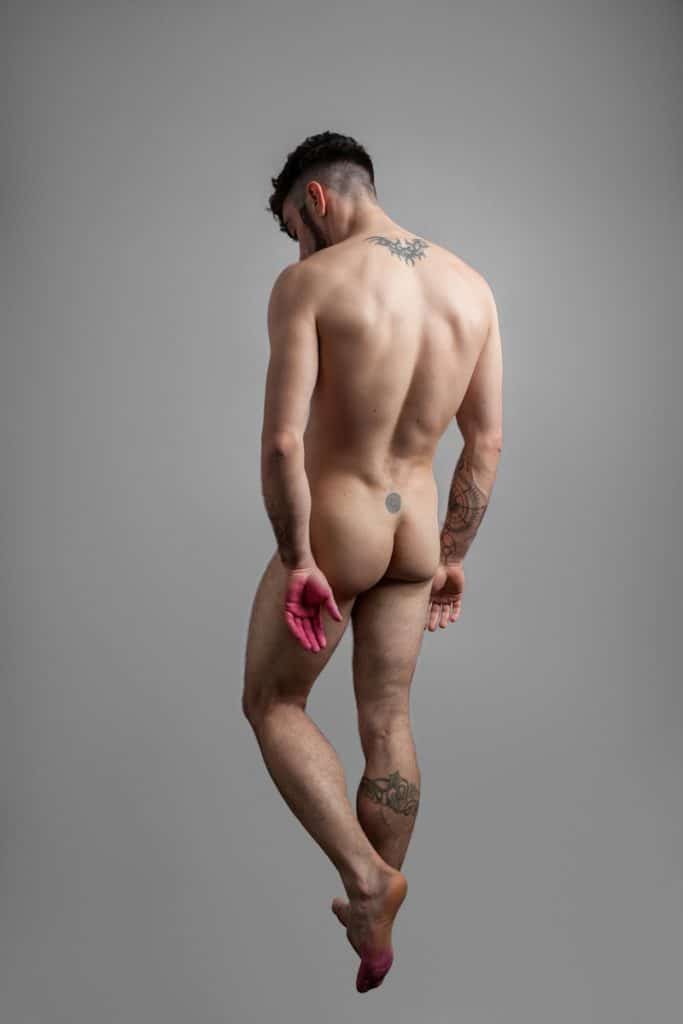
Let us know you want us to write more content like this with a love!
Share
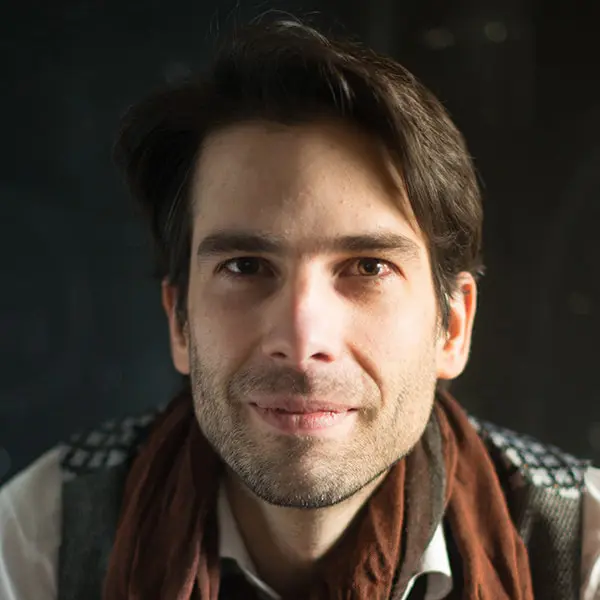
Guy Armitage
Founder
View Profile
